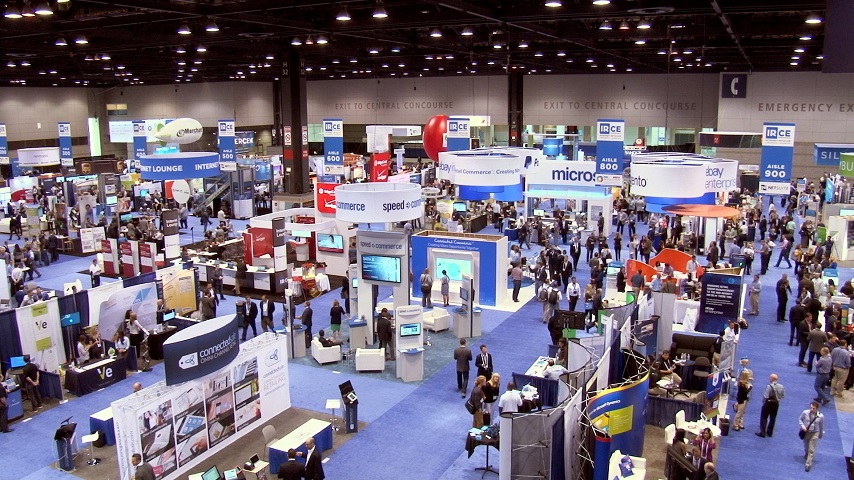
Hosting a successful conference requires more than selecting a venue and securing speakers—it demands a comprehensive conference marketing strategy that attracts attendees and keeps them engaged throughout the event. With the right marketing tactics, you can create a buzz, maximize attendance, and deliver value that resonates with your audience.
Here are four conference marketing ideas designed to captivate your target audience, ensure meaningful engagement, and enhance the overall event experience.
1. Create a Compelling Digital Presence
A strong online presence is essential for any conference. Attendees often research events before registering, and your digital platforms should clearly convey the value your conference offers.
Key Strategies:
- Engaging Event Website: Your conference website should include:
- A clear and compelling value proposition.
- Speaker bios and session details.
- Easy-to-navigate registration options.
- Testimonials or videos from previous attendees.
- Search Engine Optimization (SEO): Optimize your website with relevant keywords, such as “tech conference in Chicago” or “marketing summit 2024,” to improve search visibility.
- Social Media Campaigns:
- Share updates, teasers, and countdowns across platforms.
- Create an event hashtag (e.g., #MarketingSummit2024) and encourage its use.
- Post speaker highlights, behind-the-scenes content, and attendee testimonials.
- Retargeting Ads: Use retargeting ads to engage people who visit your website but don’t register. Offer discounts or additional benefits to entice them to complete their registration.
Pro Tip:
Ensure your website and all digital campaigns are mobile-friendly, as a significant portion of attendees will engage via smartphones.
2. Engage Your Audience with Personalized Email Marketing
Email marketing is one of the most effective tools for conference promotion. It allows you to connect directly with your target audience, nurture leads, and provide valuable information that drives registrations.
Key Strategies:
- Segmented Campaigns: Divide your email list into segments based on criteria like industry, job role, or past attendance. This allows you to send targeted messages that resonate with each group.
- Event Announcements: Send emails introducing keynote speakers, session topics, and special activities to build excitement.
- Early Bird Incentives: Offer discounted tickets for early registrations and create urgency by including countdowns in your emails.
- Follow-Up Emails: After someone registers, send a confirmation email followed by a series of informative messages, such as:
- What to expect at the conference.
- Networking tips or resources.
- App download instructions if your conference has a dedicated app.
Pro Tip:
Use A/B testing to refine your subject lines and email content, ensuring maximum open and click-through rates.
3. Collaborate with Industry Leaders and Influencers
Leveraging the influence of industry experts can significantly expand your conference’s reach and credibility. Collaborations with thought leaders, speakers, and influencers help you tap into their networks and build trust with potential attendees.
Key Strategies:
- Speaker Promotions: Encourage your speakers to share their involvement on their social media channels and email lists. Provide them with promotional assets like graphics, sample posts, and hashtags.
- Panel Discussions: Host pre-event webinars or podcasts featuring your conference speakers to give attendees a preview of what to expect.
- Influencer Partnerships: Partner with industry influencers who align with your conference theme. Their endorsement can attract their followers to your event.
- Guest Blogging: Invite speakers or influencers to contribute articles to your website or blog, discussing topics that tie into the conference theme.
Pro Tip:
Recognize and reward your collaborators by offering perks like complimentary tickets, VIP access, or a feature on your event’s website.
4. Enhance Engagement with Interactive Technology
Modern conferences thrive on audience interaction. Integrating interactive tools and technology into your marketing strategy can create buzz, foster engagement, and enhance the attendee experience.
Key Strategies:
- Conference App: Create an app where attendees can:
- View schedules and speaker profiles.
- Build personalized agendas.
- Engage in live Q&A sessions or polls.
- Network with other participants through chat or matchmaking features.
- Gamification: Introduce game elements like leaderboards, scavenger hunts, or point-based rewards for actions like visiting exhibitor booths or attending sessions.
- Live Polling and Q&A: Use live polling tools to make sessions interactive and capture attendee opinions in real time.
- Augmented and Virtual Reality (AR/VR): Offer immersive experiences, such as virtual venue tours, AR-enhanced presentations, or VR networking lounges.
Pro Tip:
Promote your tech offerings in pre-event communications to familiarize attendees with the tools and maximize participation.
Tying It All Together
A successful conference marketing strategy requires a mix of creativity, technology, and collaboration. Here’s how to integrate these four ideas seamlessly:
- Start Early: Begin your digital campaigns and email outreach several months before the event to build awareness and anticipation.
- Consistent Messaging: Ensure consistency across all platforms—social media, email, website, and promotional materials.
- Engage Continuously: Use periodic updates and teasers to keep your audience engaged in the lead-up to the conference.
- Monitor Performance: Track key performance indicators (KPIs) like website traffic, email open rates, social media engagement, and registrations to gauge the effectiveness of your campaigns.
- Iterate and Improve: Gather attendee feedback and analyze post-event data to refine your marketing strategies for future conferences.
Final Thoughts
Marketing a conference is as much about storytelling and connection as it is about logistics and planning. By leveraging digital platforms, personalizing communication, collaborating with industry leaders, and embracing interactive technology, you can create a compelling conference experience that resonates with your audience.
These four marketing ideas not only attract attendees but also ensure they leave your conference with meaningful insights, connections, and experiences. Whether you’re planning a tech summit, an industry expo, or a professional development conference, these strategies will help you maximize your event’s potential.